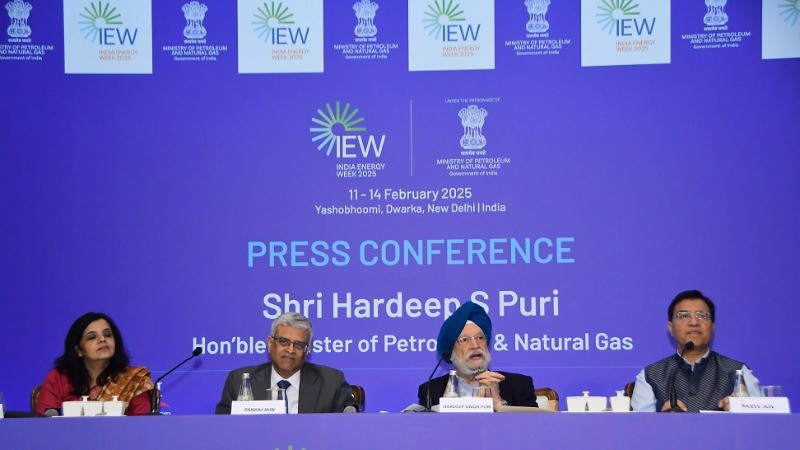
NEW DELHI: Ministers from over 20 countries, including leading economies and key energy-producing nations, will attend the India Energy Week (IEW) 2025 in New Delhi from February 11 to 14, officials confirmed.
Apart from energy ministers, the event will also attend foreign ambassadors, leaders of international organizations, and around 90 CEOs and executives from some of the world’s top Fortune 500 energy companies.
Spanning over one lakh square meters, India Energy Week 2025 is set to become the second-largest energy event in the world. Building on the success of the last two editions, both inaugurated by Prime Minister Narendra Modi, this year’s event aims to strengthen its position as a key platform for global energy discussions.
As the first major energy event of 2025, IEW will focus on the sector's challenges and new opportunities. It will be held at Yashobhoomi, India’s largest convention and exhibition center, located on the Delhi-Gurgaon border in Dwarka.
Key attendees include Petroleum Minister Hardeep Singh Puri, Tanzania’s Deputy Prime Minister and Minister of Energy Dkt Doto Mashaka Biteko, and Djibouti’s Minister of Energy Yonis Ali Guedi. International representatives like Jassim Al Shirawi, Secretary General of the International Energy Forum (IEF), and Haitham Al-Ghais, Secretary General of OPEC, will also be present.
Prominent speakers will include Magda Chambriard, CEO of Petrobras; Lorenzo Simonelli, Chairman and CEO of Baker Hughes; Izumi Kai, CEO of JERA Asia; and Musabbeh Al Kaabi, CEO of Upstream ADNOC. Executives from companies like BP Group, Vitol, Technip Energies, Weatherford, Kawasaki Heavy Industries, Boeing, and Vedanta’s Cairn Oil and Gas will also participate.
The event is organized by India’s Ministry of Petroleum and Natural Gas, in collaboration with the Federation of Indian Petroleum Industry (FIPI) and dmg events. It aims to promote collaboration and innovation in the global energy sector.
IEW 2025 will feature 10 country pavilions from nations such as the United States, the United Kingdom, Russia, Japan, Germany, and the Netherlands. Additionally, eight themed zones will focus on key areas like hydrogen, renewables, biofuels, and petrochemicals, offering a platform to discuss the energy transition and sustainable development.